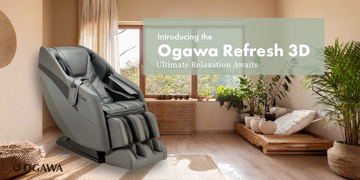Hypertension, also known as high blood pressure, affects millions of people worldwide and is a significant risk factor for heart disease, stroke, and other cardiovascular complications. Although high blood pressure may seem frightening, managing it effectively is possible with long-term strategies aimed at reducing blood pressure and minimizing the risk of associated complications. This article will look at ways to treat hypertension, including lifestyle modifications, monitoring techniques, complementary therapies, and the importance of consistent treatment.
What is Hypertension?
Hypertension is a medical condition where the force of blood against the walls of arteries is consistently too high and can be caused by various factors, including genetics, lifestyle choices (such as diet, physical activity, and smoking), stress, and certain medical conditions. It's often considered a "silent killer" because it usually has no symptoms but can lead to serious health complications like heart disease, stroke, kidney failure, and other vascular problems if left untreated.
Blood pressure is measured in millimeters of mercury (mmHg) and is recorded as two numbers: systolic pressure (the pressure when the heart beats while pumping blood) over diastolic pressure (the pressure when the heart is at rest between beats). A normal blood pressure reading is typically around 120/80 mmHg. Hypertension is diagnosed when blood pressure consistently measures 130/80 mmHg or higher.
Lifestyle Modifications for Managing Hypertension
One of the most effective ways to manage hypertension long-term is through lifestyle modifications. Adopting a heart-healthy lifestyle can significantly lower blood pressure and improve overall cardiovascular health. Here are some common lifestyle changes to consider:
- Heart-healthy diet: Focus on a diet rich in fruits, vegetables, whole grains, and lean proteins while limiting saturated fats, cholesterol, and sodium. The DASH (Dietary Approaches to Stop Hypertension) diet, which emphasizes fruits, vegetables, and low-fat dairy products, has been shown to lower blood pressure.
- Regular exercise: Engage in regular physical activity such as brisk walking, swimming, cycling, or dancing for at least 150 minutes per week. Exercise helps lower blood pressure, strengthen the heart, and improve circulation.
- Stress management: Chronic stress can contribute to high blood pressure and other physical signs of stress, like sore muscles or cardiovascular issues. To reduce stress, try practicing deep breathing, meditation, yoga, or tai chi to achieve relaxation and potentially lower blood pressure.
Monitoring Blood Pressure for Long-Term Hypertension Management
Monitoring blood pressure regularly is essential for how to help hypertension. This allows people to track their progress, identify trends, and make necessary adjustments to their treatment plans. Here are some tips for monitoring blood pressure:
- At-home monitoring: Invest in a reliable home blood pressure monitor and follow the instructions for accurate readings. Measure blood pressure at the same time each day, preferably in the morning before taking any medications or engaging in strenuous activity.
- Keep a log: Record blood pressure readings in a log or journal to track changes over time. Note any factors that may influence blood pressure, such as diet, exercise, medication, and stress levels.
- Regular check-ups: Schedule regular check-ups with your healthcare provider to monitor blood pressure and assess overall cardiovascular health. Your doctor can adjust your treatment plan as needed based on your progress and any changes in your health status.
Complementary Therapies to Lower Blood Pressure
In addition to conventional treatments, some complementary therapies may help lower blood pressure. These approaches should not replace medical treatment; they can complement existing strategies and improve outcomes.
Relaxation Techniques
Relaxation techniques can be valuable tools in managing hypertension by reducing stress and promoting overall well-being by promoting ways to relax. Effective methods like deep breathing exercises, meditation, mindfulness, and yoga help to trigger the body's relaxation response, lowering heart rate and blood pressure
Incorporating these techniques into a daily routine can complement other lifestyle changes and medical treatments. These hypertension treatments can contribute to better blood pressure management and overall cardiovascular health.
Massage Chairs
Massage chairs offer a convenient and potentially effective way to help lower blood pressure by promoting relaxation and reducing stress. These chairs use different types of massage techniques such as kneading, tapping, rolling, and Shiatsu to target different muscle groups and induce a sense of calmness. Regular use of massage chairs can stimulate the release of endorphins, the body's natural painkillers, which can help alleviate tension and improve mood.
While massage chairs can provide temporary relief from stress and tension, it's essential to combine their use with other healthy lifestyle choices such as regular exercise, a balanced diet, and adequate sleep to manage blood pressure in the long term effectively.
Herbal Remedies
Herbal remedies have been used for centuries to help manage various health conditions, including hypertension. Some herbs have shown promise in lowering blood pressure levels and promoting cardiovascular health. For example, garlic contains compounds that may help relax blood vessels and improve blood circulation, potentially leading to modest reductions in blood pressure.
While herbal remedies, like garlic, hawthorn, or hibiscus tea, can complement conventional treatments for hypertension, it's essential to consult with a healthcare professional before incorporating them into your regimen, especially if you're already taking medications or have underlying health conditions.
How to Treat Hypertension with Consistent Treatment
Consistency is key when it comes to managing hypertension long-term. Following a consistent treatment plan can help prevent organ damage and reduce the risk of cardiovascular events. Here are three reasons why consistent treatment is essential:
- Preventing organ damage: Uncontrolled hypertension can damage blood vessels, heart, kidneys, brain, and other organs over time. Consistent treatment helps keep blood pressure within a healthy range, reducing the risk of organ damage and complications.
- Reducing cardiovascular events: High blood pressure is a leading risk factor for heart attack, stroke, and other cardiovascular events. By consistently managing blood pressure through lifestyle modifications and medication, people can significantly lower their risk of these serious health problems.
- Improving quality of life: Effective management of hypertension can improve quality of life by reducing symptoms such as headaches, dizziness, fatigue, and shortness of breath. By maintaining healthy blood pressure levels, people can enjoy better overall health and well-being.
Learning How to Help Hypertension
Managing hypertension long-term requires an approach that includes lifestyle modifications, regular monitoring, complementary therapies like an at-home massage chair, and consistent treatment. By adopting some or all of these hypertension treatments, people can effectively manage hypertension and reduce the risk of complications. Remember to work closely with your healthcare provider to develop a personalized treatment plan that meets your unique needs and health goals. With dedication and commitment, hypertension can be managed, allowing for a healthier and happier life.
Disclaimer: This content is not medical advice. Please consult with your healthcare professional when considering implementing changes to your health or workout routines to ensure it’s compatible with your needs.




